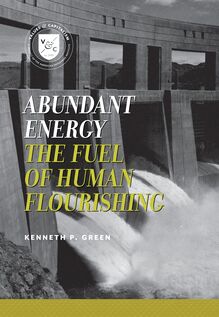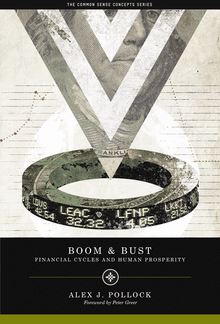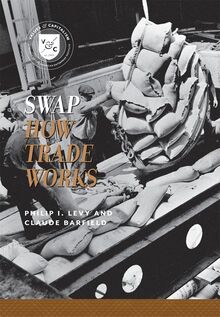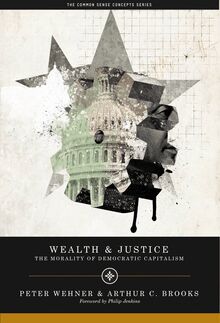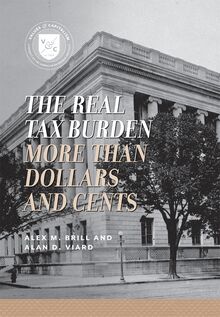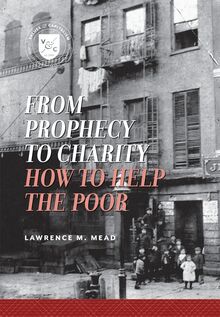-
 Univers
Univers
-
 Ebooks
Ebooks
-
 Livres audio
Livres audio
-
 Presse
Presse
-
 Podcasts
Podcasts
-
 BD
BD
-
 Documents
Documents
-
- Cours
- Révisions
- Ressources pédagogiques
- Sciences de l’éducation
- Manuels scolaires
- Langues
- Travaux de classe
- Annales de BEP
- Etudes supérieures
- Maternelle et primaire
- Fiches de lecture
- Orientation scolaire
- Méthodologie
- Corrigés de devoir
- Annales d’examens et concours
- Annales du bac
- Annales du brevet
- Rapports de stage
La lecture à portée de main
Vous pourrez modifier la taille du texte de cet ouvrage
Découvre YouScribe en t'inscrivant gratuitement
Je m'inscrisDécouvre YouScribe en t'inscrivant gratuitement
Je m'inscrisEn savoir plus
Vous pourrez modifier la taille du texte de cet ouvrage
En savoir plus

Description
Sujets
Informations
| Publié par | AEI Press |
| Date de parution | 16 octobre 2010 |
| Nombre de lectures | 0 |
| EAN13 | 9780844743783 |
| Langue | English |
Informations légales : prix de location à la page 0,0450€. Cette information est donnée uniquement à titre indicatif conformément à la législation en vigueur.
Extrait
Distributed by arrangement with the National Book Network 15200 NBN Way, Blue Ridge Summit, PA 17214 To order call toll free 1-800-462-6420 or 1-717-794-3800.
For all other inquiries please contact AEI Press, 1150 17th Street, N.W., Washington, D.C. 20036 or call 1-800-862-5801.
Copyright © 2011 by the American Enterprise Institute for Public Policy Research, Washington, D.C.
ALL RIGHTS RESERVED.
Cover Design by Amy Duty and Justin Mezzell Interior design by Amy Duty, Justin Mezzell, and Jesse Penico
No part of this publication may be used or reproduced in any manner whatsoever without permission in writing from the American Enterprise Institute except in the case of brief quotations embodied in news articles, critical articles, or reviews. The views expressed in the publications of the American Enterprise Institute are those of the authors and do not necessarily reflect the views of the staff, advisory panels, officers, or trustees of AEI.
LCCN: 2010028987 ISBN-13: ISBN-13: 978-0-8447-4377-6 eISBN-13: ISBN-13: 978-0-8447-4378-3
FOREWORD
Philip Jenkins
A French intellectual is said to have dismissed a scheme in scornful terms: “Well, yes,” he sniffed, “of course the idea works well in practice. But I’m afraid it just doesn’t work in theory .” That remark neatly summarizes a common response to capitalism, the economic system that shapes virtually everything we do, that has created such incalculable prosperity, and that is the basis of our political freedom. Yet, for all its wonders, even well educated people often find it very difficult to justify the philosophical or moral assumptions underpinning that system.
Indeed, it is all too easy to damn capitalism in moral terms. Capitalism, we hear, is synonymous with greed and selfishness; it is founded on human exploitation; it violates religious injunctions against materialism and covetousness. A familiar leftist slogan poses a critical choice between “socialism or barbarism.” So successful has such scathing rhetoric been through the decades that even proud advocates of capitalism are nervous about using the word, preferring to speak of the “free enterprise system,” or just “the market.” Capitalism is the triumphant success story that dare not speak its name.
That is the problem that Peter Wehner and Arthur C. Brooks seek to remedy in Wealth and Justice: The Morality of Democratic Capitalism , and they succeed impressively. The book takes sophisticated arguments from economics and philosophy and makes them available in terms accessible to the ordinary person. Not only does capitalism have a moral basis, the authors show, but it is absolutely founded in a particular anthropology, a view of human nature, which is also that of America’s founding fathers. Like other great Enlightenment thinkers, the founders knew that human beings were neither angels nor demons; they were not hopelessly corrupt, but neither were they perfectible. Human beings were driven by rational self-interest, which ultimately could benefit both themselves and the wider society. Wehner and Brooks show just how sizable these benefits could be. The vast historical achievements of the capitalist system are overwhelmingly greater than that of any rival economic order or theory. In fact, whenever other social systems have come close to matching the capitalist record, they have done so by adopting capitalist methods, without accepting the capitalist title.
But what about the moral critique? It is here that Wehner and Brooks make their greatest contribution to public discourse, and most convincingly challenge popular wisdom. Above all, they show that advocacy of capitalism is thoroughly grounded in morality, and arguably far more so than are rival creeds, such as socialism. If morality means pursuing the common good, then capitalism is an impeccably moral system.
While I will take away many insights from Wealth and Justice , I find particularly rewarding Wehner and Brooks’ demolition of the argument that economics is a zero-sum game, a struggle for fixed resources in which the poor inevitably confront the rich. In the United States, as in most Western countries, many well intentioned people believe that the economy can be compared to a cake of a fixed size, so that some people have a bigger share than others. The only real political question is how that cake should be distributed. If it is neither just nor reasonable that some people should have more than others, then the cake must be redistributed by means of taxation and official policies, to be undertaken by an intrusive activist state. The resulting constraints on personal freedom may be regrettable, but morality and religion demand such a course. Americans call these policies “progressive,” suggesting that they push society in the inevitable direction favored by history. In the progressive vision, anyone who opposes such an approach must be acting from motives of greed and unreasonable self-interest—that is, they must be running flat contrary to morality and justice.
Missing from such a vision is the fundamental historical fact that the “cake” is not fixed in size. Capitalism produces ever more wealth, which tends inexorably to benefit all members of the community. The dissemination of wealth does not, of course, occur at the same rate among all sections of the population, or to the same degree, but it ultimately does benefit everyone, and far more efficiently than can be accomplished by state mechanisms. This process will occur unless the natural workings of capitalism are sabotaged by ill-judged social interventions, which ultimately offer their chief benefits to bureaucrats and political elites. In the most extreme circumstances, interventionist states shed their benevolent masks and become nightmarish tyrannies. As the familiar maxim declares, a government that can do everything for you can also do anything it wants to you. n terms of their record of improving the lot of ordinary people, “progressive” policies are sadly misnamed. Not only can capitalism be reconciled with religion and morality, it is also the natural outcome of our most deeply held principles.
Wehner and Brooks present a very rich argument, which is all the more provocative for being presented in such a short space. But when we expand these arguments, when we test them against known historical experience, we find ever more illustrations that prove their case.
In fact, the best argument we can ever make for capitalism and its accomplishments is this: Just imagine the world without it. It’s not hard to do. Just ask a historian of virtually any society that existed across the globe prior to the capitalist expansion of the eighteenth century. By our contemporary standards, those societies were unimaginably poor, and not just in the sense that they lacked frivolous modern luxuries. Life was a constant struggle for food and resources, while production depended on the number of human beings that elites could dragoon into the labor force. What was society like before capitalism? I borrow the phrase of historian Eugen Weber: It was a world of scarcity, stagnation, servitude, superstition, and sharp stratification. Only a fool would view that “world we have lost” with the slightest nostalgia.
But capitalism brought abundance. It made available to millions of ordinary people access to goods, services, and leisure on a scale not available to the very richest in pre-modern times. And from that abundance stemmed blessings that were the exact inverse of the curses named by Weber. Abundance brought growth and progress, liberation, science and education, and democracy. And that democracy gradually expanded to comprehend categories wholly excluded from the old political order, most strikingly for women.
The capitalist revolution also brought these blessings to a wider and vaster world. The whole human population in 1800 was around 1 billion, rising to 1.6 billion in 1900, and 6.5 billion today. Capitalism has not only made it possible for the globe to support that vast increase, it has also greatly raised the living standards of those additional people, and immeasurably expanded their opportunities. Just since 1980, the number of people that capitalism has raised from absolute poverty is significantly larger than the total population of the world in the era of Napoleon and Thomas Jefferson. Whenever I see wealthy Americans and Europeans demonstrating against “globalization” and capitalism, I often think that we mislabel those terms. Rather than anti-globalization, let us give their cause its true name: pro-poverty.
Yet, so many of us take these miracles for granted. On more than one occasion, I have heard scholars—well educated and widely traveled individuals—denounce the horrors of consumerism and materialism, that dreadful world that the profit motive has created. We don’t need all these material goods, they tell us. Capitalism just drives us to want more and more; it feeds our lust for possessions. We should resist the blandishments of consumerism, and only use those basic goods that we absolutely need for a comfortable life. Resist capitalism!
But then you start asking: So what are those basic, essential goods and services that we all agree we need, and which can be separated from meaningless luxuries? In most cases, the answer is simple: Those goods that activists define as essential are what they regarded as natural and universal when they were young adults, so that everything that came along later is consumerist vanity. So, bicycles and cars are essential, as are electrical power and heating, ovens and washing machines, antibiotics and disinfectants. Presumably, in twenty years, when anti-consumerist critics are denouncing unnecessary luxuries, they will not include such fundamental necessities as computers and PDAs, MP3 players and video game consoles. In forty years, the list of basic old-fashioned necessities will certainly include devices and ser
-
 Univers
Univers
-
 Ebooks
Ebooks
-
 Livres audio
Livres audio
-
 Presse
Presse
-
 Podcasts
Podcasts
-
 BD
BD
-
 Documents
Documents
-
Jeunesse
-
Littérature
-
Ressources professionnelles
-
Santé et bien-être
-
Savoirs
-
Education
-
Loisirs et hobbies
-
Art, musique et cinéma
-
Actualité et débat de société
-
Jeunesse
-
Littérature
-
Ressources professionnelles
-
Santé et bien-être
-
Savoirs
-
Education
-
Loisirs et hobbies
-
Art, musique et cinéma
-
Actualité et débat de société
-
Actualités
-
Lifestyle
-
Presse jeunesse
-
Presse professionnelle
-
Pratique
-
Presse sportive
-
Presse internationale
-
Culture & Médias
-
Action et Aventures
-
Science-fiction et Fantasy
-
Société
-
Jeunesse
-
Littérature
-
Ressources professionnelles
-
Santé et bien-être
-
Savoirs
-
Education
-
Loisirs et hobbies
-
Art, musique et cinéma
-
Actualité et débat de société
- Cours
- Révisions
- Ressources pédagogiques
- Sciences de l’éducation
- Manuels scolaires
- Langues
- Travaux de classe
- Annales de BEP
- Etudes supérieures
- Maternelle et primaire
- Fiches de lecture
- Orientation scolaire
- Méthodologie
- Corrigés de devoir
- Annales d’examens et concours
- Annales du bac
- Annales du brevet
- Rapports de stage
